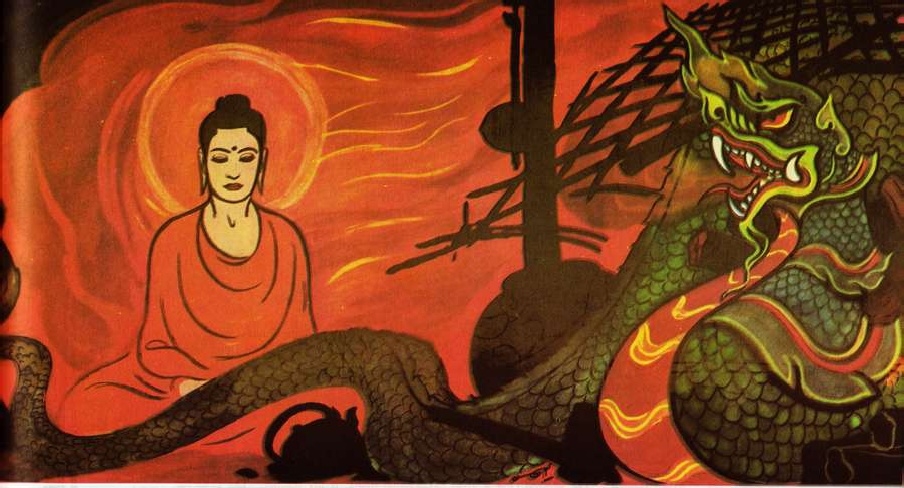
One who wishes to reach the Buddha-Dhamma must firstly be one who has faith or confidence as a foundation. He must understand the meaning of Buddha-Dhamma as follows:
Buddha: the ‘one-who-knows’, the one who has purity, radiance and peace in his heart.
Dhamma: the characteristics of purity, radiance and peace which arise from morality, concentration and wisdom.
Therefore, one who is to reach the Buddha-Dhamma is one who cultivates and develops morality, concentration and wisdom within himself.
Walking the Path of Buddha-Dhamma
Naturally people who wish to reach their home are not those who merely sit and think of traveling. They must actually undertake the process of traveling step by step, and in the right direction as well, in order to finally reach home. If they take the wrong path they may eventually run into difficulties such as swamps or other obstacles which are hard to get around. Or they may run into dangerous situations in this wrong direction, thereby possibly never reaching home.
Those who reach home can relax and sleep comfortably – home is a place of comfort for body and mind. Now they have really reached home. But if the traveler only passed by the front of his home or only walked around it, he would not receive any benefit from having traveled all the way home.
In the same way, walking the path to reach the Buddha-Dhamma is something each one of us must do individually ourselves, for no one can do it for us. And we must travel along the proper path of morality, concentration and wisdom until we find the blessings of purity, radiance and peacefulness of mind that are the fruits of traveling the path.
However, if one only has knowledge of books and scriptures, sermons and suttas, that is, only knowledge of the map or plans for the journey, even in hundreds of lives one will never know purity, radiance and peacefulness of mind. Instead one will just waste time and never get to the real benefits of practice. Teachers are those who only point out the direction of the path. After listening to the teachers, whether or not we walk the path by practicing ourselves, and thereby reap the fruits of practice, is strictly up to each one of us.
Another way to look at it is to compare practice to a bottle of medicine a doctor leaves for his patient. On the bottle is written detailed instructions on how to take the medicine, but no matter how many hundred times the patient reads the directions, he is bound to die if that is all he does. He will gain no benefit from the medicine. And before he dies he may complain bitterly that the doctor wasn’t any good, that the medicine didn’t cure him! He will think that the doctor was a fake or that the medicine was worthless, yet he has only spent his time examining the bottle and reading the instructions. He hasn’t followed the advice of the doctor and taken the medicine.
However, if the patient actually follows the doctor’s advice and takes the medicine regularly as prescribed, he will recover. And if he is very ill, it will be necessary to take a lot of medicine, whereas if he is only mildly ill, only a little medicine will be needed to finally cure him. The fact that we must use a lot of medicine is a result of the severity of our illness. It’s only natural and you can see it for yourself with careful consideration.
Doctors prescribe medicine to eliminate disease from the body. The teachings of the Buddha are prescribed to cure disease of the mind, to bring it back to its natural healthy state. So the Buddha can be considered to be a doctor who prescribes cures for the ills of the mind. He is, in fact, the greatest doctor in the world.
Mental ills are found in each one of us without exception. When you see these mental ills, does it not make sense to look to the Dhamma as support, as medicine to cure your ills? Traveling the path of the Buddha-Dhamma is not done with the body. You must travel with the mind to reach the benefits. ~Ajahn Chah




















